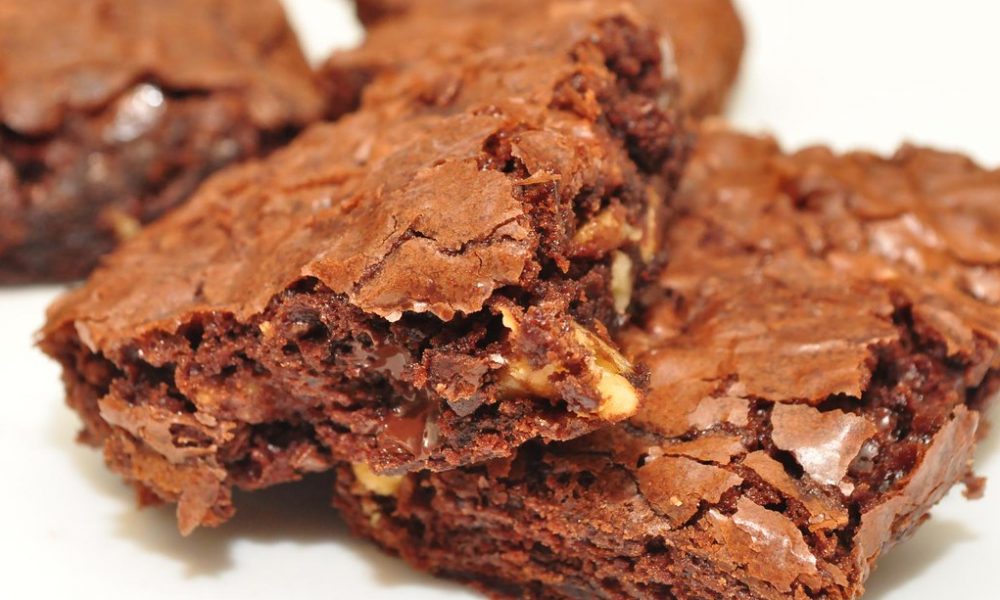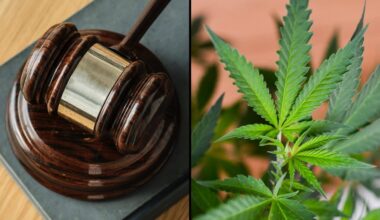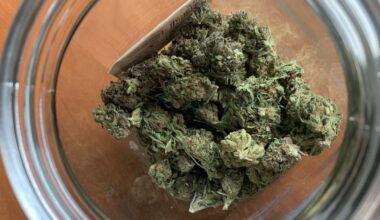The Food and Drug Administration (FDA) is warning consumers about marijuana-infused copycat food products that resemble popular brands and the risks of accidentally ingesting THC, particularly for children.
In a safety advisory released on Friday, the agency said it is aware of reports that people are inadvertently eating cannabis edibles that look like common cereals and candies but actually contain THC. Unknowingly eating the products could “lead to serious adverse events, especially in children,” it said.
“The FDA is aware of reports of copycat products packaged to look like Cap’n Crunch, Cocoa Pebbles, Cocoa Puffs, Froot Loops, Fruity Pebbles, Nerds Ropes, Starbursts, Sour Patch Kids, and Trix, among others,” the notice says.
Some THC edible products are designed to mimic well-known brands by using similar names, logos or pictures on their packaging. These copycats are easily mistaken for popular foods that appeal to children. Always keep products like these in a safe place & out of reach of children. https://t.co/vSI9sqBt6G
— Dr. Janet Woodcock (@DrWoodcockFDA) May 13, 2022
Several major companies—including Pepsi, General Mills and Kellogg—recently raised concerns about the misleading marketing trend in a letter to congressional lawmakers, requesting action to address the copycats.
Beyond issuing the safety advisory, FDA said it is “actively working with federal and state partners to further address the concerns related to these products and monitoring the market for adverse events, product complaints, and other emerging cannabis-derived products of potential concern.”
From January 2021 through April 24, 2022, we received more than 100 adverse event reports related to children and adults who consumed edible products containing THC.
— U.S. FDA (@US_FDA) May 13, 2022
The agency said that it’s aware of “multiple media reports” about people accidentally consuming marijuana products, and the agency has separately received more than 100 adverse event reports concerning THC from January 2021 to April 24, 2022.
We’re actively working with federal and state partners to further address the concerns related to these products and monitoring the market for adverse events, product complaints, and other emerging cannabis-derived products of potential concern.
— U.S. FDA (@US_FDA) May 13, 2022
FDA said that people who mistakenly eat a THC-infused product and experience negative side effects should contact an emergency service, poison control center or healthcare provider.
If you or someone else in your care have serious side effects from these products, call 9-1-1 or get emergency medical help right away. If a child has consumed these products, do not wait for symptoms to appear. Immediately call the local poison control center: 1-800-222-1222
— U.S. FDA (@US_FDA) May 13, 2022
It also advised people to report adverse events related to accidental ingestion of marijuana through FDA’s MedWatch Safety Information and Adverse Event Reporting Program.
Preventing underage marijuana use in particular is a shared goal among legalization advocates and prohibitionists alike. While federally funded studies have found that adolescent cannabis use has remained stable or even declined in states that have legalized and regulated marijuana, there’s consensus that precautions should be taken to ensure that young people don’t mistakenly consume cannabis.
Around Halloween last year, attorneys general from multiple states across the U.S. warned parents about illicit marijuana products that resemble popular candies and snacks like Cheetos, Nerds and Oreos, which could confuse kids and lead to accidental intoxication.
Activists have grown weary of sensationalized and often unsubstantiated reports of people giving away free marijuana edibles to children on the holiday, but it speaks to a larger trend that trade associations and FDA are warning about.
Meanwhile, FDA also recently issued its first set of warnings to companies over the allegedly illegal sale of products containing the increasingly popular cannabinoid delta-8 THC.
The agency sent five warning letters to companies that are marketing products with the intoxicating compound and making what the agency says are unsanctioned claims about their therapeutic potential.
The top Republican on a key congressional committee also called on leadership this month to schedule a hearing to hold FDA accountable for its lack of action to set regulations for CBD and delta-8 THC products.
California Governor Proposes Marijuana Tax Cuts To Combat Illicit Market
Photo courtesy of Flickr/jeffreyw.
Medical Disclaimer:
The information provided in these blog posts is intended for general informational and educational purposes only. It is not a substitute for professional medical advice, diagnosis, or treatment. Always seek the advice of your physician or other qualified healthcare provider with any questions you may have regarding a medical condition. The use of any information provided in these blog posts is solely at your own risk. The authors and the website do not recommend or endorse any specific products, treatments, or procedures mentioned. Reliance on any information in these blog posts is solely at your own discretion.







